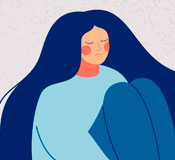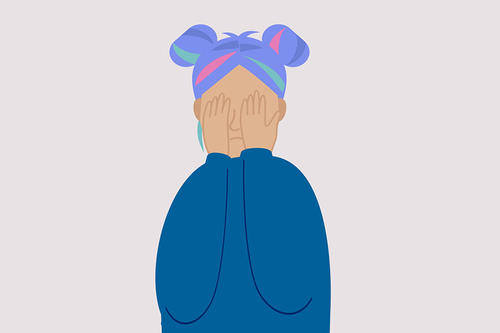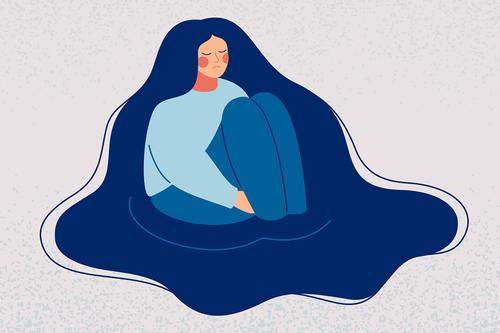New and ongoing stressors, layer upon layer
Nina Hernandez Beithon is the diversity liaison counselor in Student Counseling Services, which, along with Boynton Mental Health, provides clinical counseling on the Twin Cities campus.
As such, she’s working primarily with students facing an element of race-based trauma—some of it triggered by the killing of George Floyd last May and the uprisings that followed.
Nina Hernandez Beithon is the diversity liaison counselor in Student Counseling Services, which, along with Boynton Mental Health, provides clinical counseling on the Twin Cities campus.
As such, she’s working primarily with students facing an element of race-based trauma—some of it triggered by the killing of George Floyd last May and the uprisings that followed.
The way that Beithon sees it, students in marginalized communities have faced growing layers of challenges and trauma, beginning with the pandemic.
“Then there was the murder of George Floyd and then the state’s response to that,” she says. “Then the election was this next push of, ‘What does this mean, what’s going to happen?’ There’s an insurrection, there’s violence against the Asian/Asian American community that’s been continuing to escalate; it’s wave after wave after wave.
—Nina Hernandez Beithon
“We know that racial trauma and violence towards marginalized communities is not new, but the unique factors of a pandemic coupled with these events are having a strong impact on all students and especially those with multiple marginalized identities. It's really compounding.”
Beithon notes that communities are coming together and forming ways of healing through mutual aid. “Affinity groups held in collaboration with campus partners are one of the spaces where we have seen that support happen,” she says.
Ultimately, the tribulations facing college students—especially in the Twin Cities—often go far beyond adapting to online classes and a much more restricted social life.
“There’s a lot of experiences for young people right now that aren’t necessarily being acknowledged as being as valid as they are,” adds Rich. That’s just another layer on top of everything that’s going on.”
Hanson says that accumulation of stress will continue to manifest into the future.


“It’s been kind of a sustained trauma at different levels for different people,” he says. And that’s the part where I think public health experts are worried about the mental health pandemic to follow. How do we collectively deal with some of these long-standing, either ‘capital T’ traumas or ‘lower T’ traumas? The ‘lower T’ traumas may involve a specific event that didn't happen to you, but you’re embedded in an ecosystem where there’s constant uncertainty and threat or fear of attack, those kinds of things. And that’s been happening for a long time.”
- Categories:
- Health



